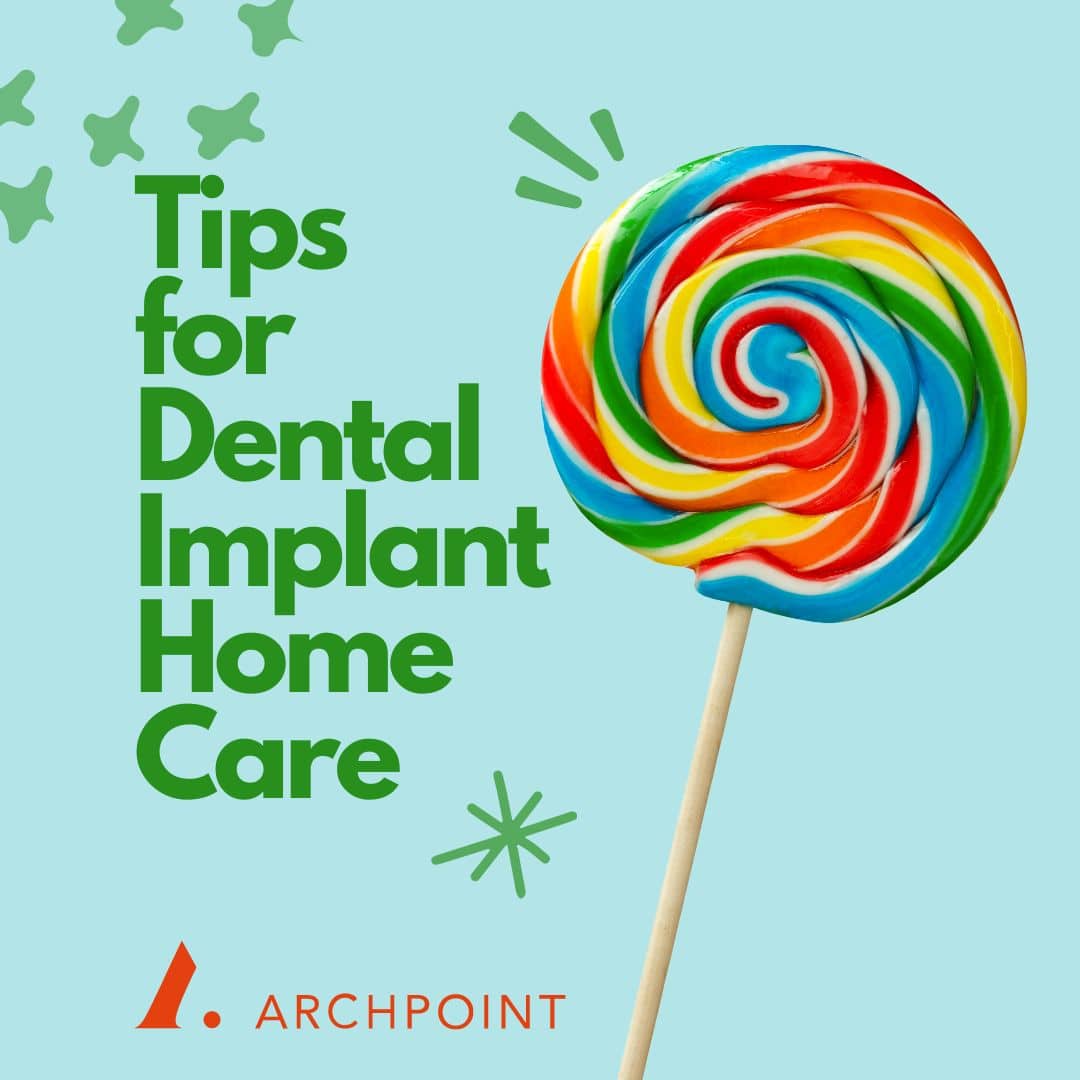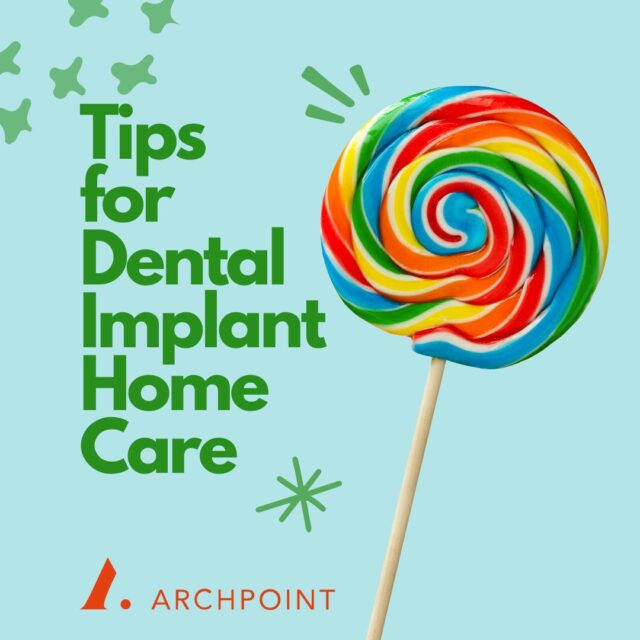
Once you’ve gotten your dental implants, it’s important to take care of them properly at home to ensure they remain healthy and strong. However, with the wide variety of dental implant systems available on the market, there are so many different products and methods to choose from that it can be difficult to know where to start. With that in mind, we’ve put together this comprehensive list of our top tips for taking care of your dental implants!
Brush Around Your Dental Implants Twice a Day
Just like your natural teeth, your implants need to be brushed twice a day to remove plaque and bacteria. When brushing around implants, use a soft-bristled toothbrush and gentle circular motions or extremely short back-and-forth strokes.
Be sure to brush all surfaces of the implant, including the top, sides, and along the gum tissues. You may also want to use an interdental brush to get in between your implants and clean them thoroughly if there are open spaces where a toothbrush doesn’t reach.
It’s a good idea to use a fluoride toothpaste if you still have any remaining teeth in your mouth. Otherwise, select a nonabrasive toothpaste of your choice.
Floss or Water Floss Around the Base of Each Implant Tooth
It’s important to keep the base of each implant tooth clean, as this is where bacteria can build up and cause problems. Even though your implants won’t get cavities, it’s still possible to get gingivitis or peri-implant (gum) disease around them, so flossing is a must.
The best way to clean around the base of an implant tooth is to floss or use a water flosser. Water flossing is especially effective, as the water pressure can help remove plaque and debris from around the implant in hard-to-reach spaces, like under bridges or around All-on-4 treatments.
Brushing only cleans about 60% of your tooth and implant surfaces, so flossing/water flossing is completely necessary for implant patients each day.
Wear a Night Guard if You Have Dental Implants
A night guard is a custom-made oral appliance that you wear over your teeth to prevent wear to your dental crowns, bridges, or other implant restorations. Wearing a night guard can help reduce the risk of damage to your dental work and can also help reduce headaches and jaw pain. Since chronic teeth clenching or grinding can break both teeth and dental restorations, a nightguard is an important investment in your smile.
First, choose a night guard that fits comfortably over your teeth. For most people, that’s a custom appliance that their dentist makes in the office using an impression of your bite. The more contoured fit offers better protection and security, so you’ll be more likely to wear it all night long.
Keep Your Gums Healthy
Your gums play an important role in the integrity and lifespan of your dental implants. If your gums become infected, it can lead to implant failure. Fortunately, good oral hygiene will ensure your implant investment lasts decades, if not a lifetime.
To keep your gums healthy, brush and floss regularly, and see your dentist for regular cleanings. The main goal is to prevent any type of inflammation or plaque and tartar buildup close to the gum tissues. Buildup can attach to implants, which is why your brushing and flossing routine are still so important. If you notice any changes in your gums, such as redness, swelling, or bleeding, be sure to see your dentist right away.
Like periodontal disease, peri-implantitis (gum disease around dental implants) needs to be treated promptly. For best results, see your dentist at least twice a year or if redness around implants persists for more than a week.
Use Alcohol-Free Mouthrinse
Alcohol-free mouthwash is important for people with dental implants or even if you struggle with dry mouth. Alcohol can cause dry gum tissues, which may lead to other complications, such as delayed healing times. Plus, dry mouth can lead to bad breath.
Try to stick with a gentler, alcohol-free mouth rinse that contains essential oils. Essential oils don’t just boost the freshness of your breath; they also have antimicrobial capabilities to help manage gingivitis and gum disease.
Avoid Tobacco Products with Dental Implants
Tobacco products are one of the more common causes of dental implant failure and tooth loss. When you use tobacco products, they can damage your teeth and gums because of how much it suppresses the healing process. All too often, people who smoke tend to experience more advanced gum and bone loss around their teeth and implants without ever realizing there’s even an infection. Plus, tobacco products can stain your teeth and implant restorations, making them look dark and dingy. If you want to keep your dental implants healthy, it’s best to avoid tobacco products altogether.
Visit Your Dentist for Regular Checkups
Just like regular teeth, dental implants need to be professionally cleaned and evaluated by your dental team twice a year. You should visit your dentist and hygienist for regular checkups every six months at least. They will evaluate your gum health and bone levels, perform an oral cancer screening, and clean your dental implants. While at-home care is important, only a professional can clean certain areas of your dental work, so routine visits are necessary even if you no longer have any “natural” teeth.
If you notice that there is any visible tartar buildup across your smile, infected gums, or something similar, more frequent visits may be needed.
Your DFW Dental Implant Specialists
ARCHPOINT Implant Dentistry is committed to ensuring a successful experience for each of our dental implant clients. Not only are we here to oversee the planning and placement of your new implants, but we want to also ensure the long-term success of your entire smile.
For advice on cleaning your dental implants or to have them evaluated by a specialist, feel free to call our office in Dallas or Ft. Worth. The ARCHPOINT implant team is always happy to assist our patients, even if you had your implants placed elsewhere.








